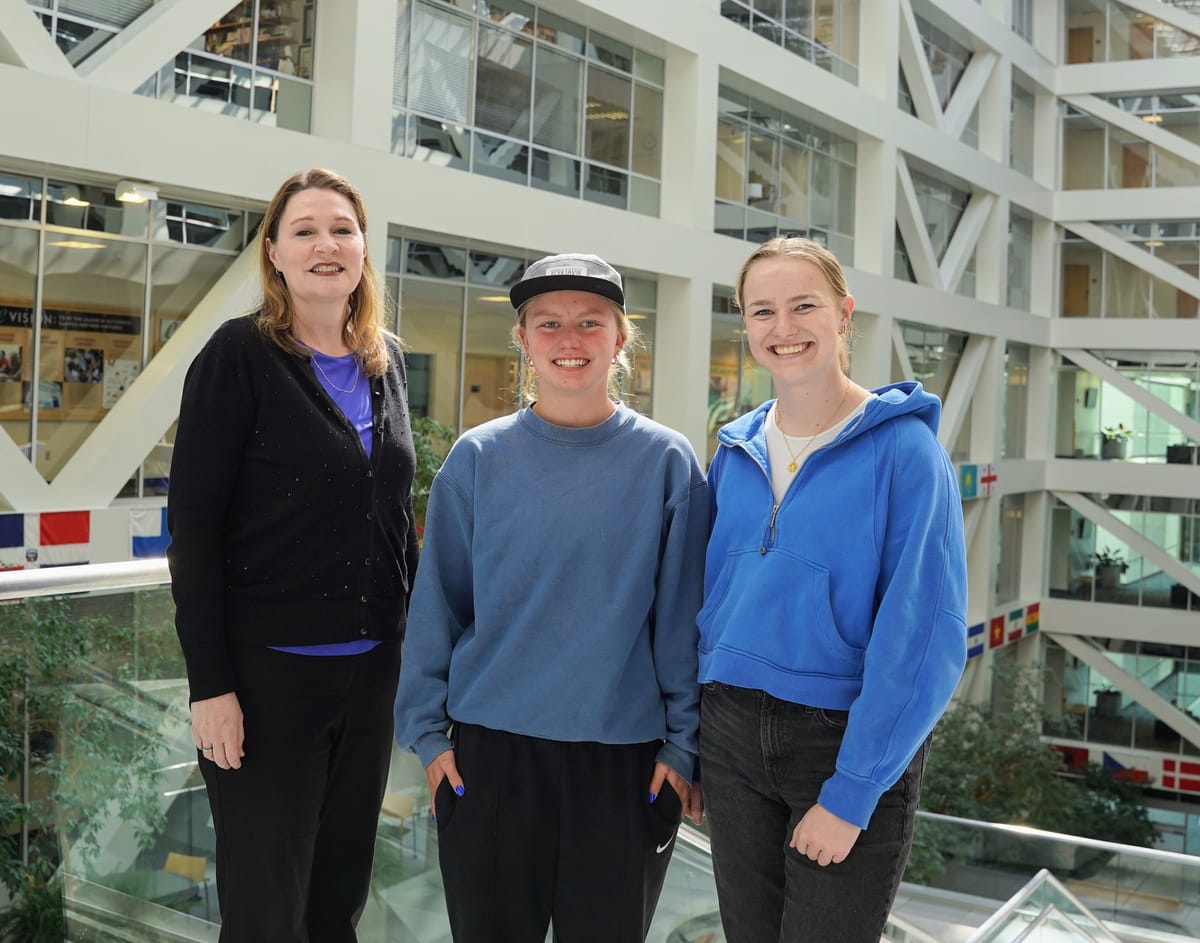

Breaking Barriers and Building Systems: The Vision and Voice of Dr. Bonnie Anderson
“できるよ — Dekiru yo!”
These Japanese words were once posted on the inside of Dr. Bonnie Anderson’s office door. Translated, they mean: You can do it! It’s a simple message that encapsulates her life and career in technology—a path defined by grit, curiosity, and resilience.
Dr. Anderson’s journey into tech began in junior high, when her family received an Apple IIc computer for Christmas. She later helped her father learn to use VisiCalc, the first spreadsheet program, on their family’s IBM machine. “There wasn’t really anyone who inspired me to go into tech,” she said. “But my humanities teacher helped me realize it was okay to be different.”
Her parents, having grown up with limited career options for women, encouraged her to aim higher. “They told me that in their day, women could only be teachers or nurses. ‘You can be something else. You should go into business.’ So I stuck with business.”
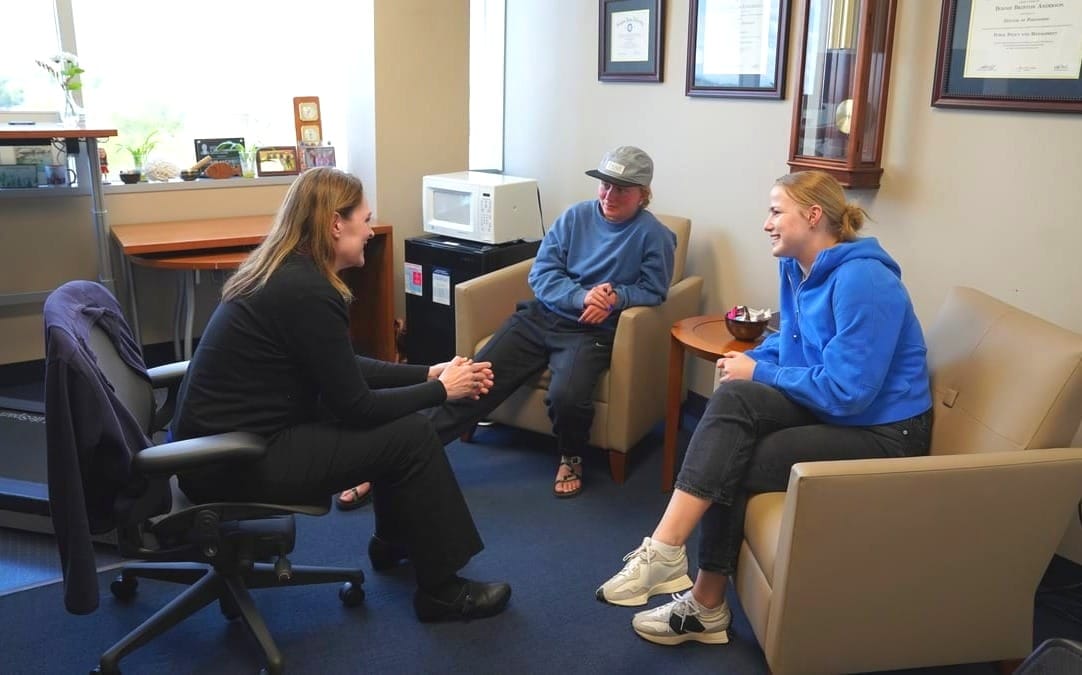
Dr. Anderson attended Brigham Young University and fell in love with her first database class in the business school. This led her to pursue a degree in Information Systems. “When I came back from my mission, the professor I’d worked for had retired, so I was assigned to a new professor as his teaching assistant. During the semester, he traveled out of the country for a conference, so I was asked to teach his classes for a week. I had to really focus to prepare since I was rusty—but it was quite a rush. After that experience, I thought maybe I’d like to be a professor.”
As one of the few women in her field, Dr. Anderson dealt early on with impostor syndrome. “Women made up less than 10% of my classes,” she recalled. “When there were photos, all the men were in suits. I would wear a red shirt or red blazer because I didn’t want to blend in. I was often in the back, because I’m tall—but I stood out because I wasn’t in a dark blazer.”
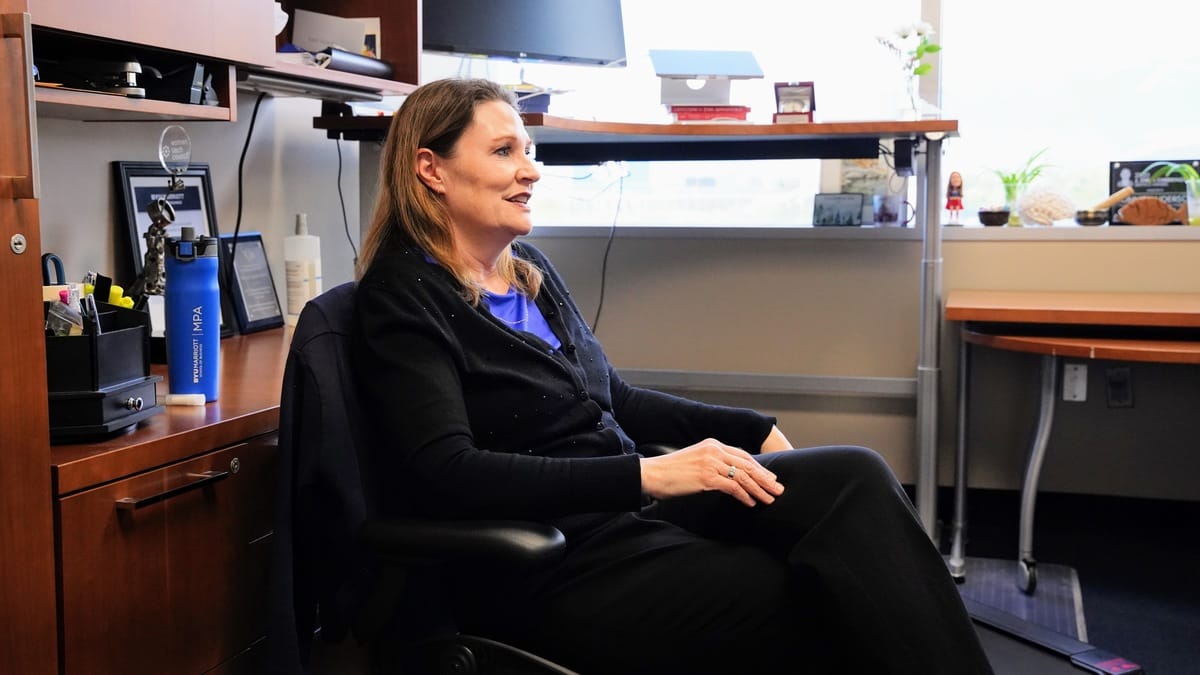
After earning her master's from BYU in Accountancy in Information Systems Consulting, she went on to get a Ph.D. at Carnegie Mellon University. This was no easy task, she explains, “When you get a Ph.D., people often think you’re smart. But I think a Ph.D. is about endurance. It’s about grit. It’s about continuing to plug away while many requirements may change. Maybe you have to take more classes and have a heavier workload. But you keep plugging away.” In 2001, Bonnie Anderson became Dr. Anderson with her Ph.D. in Information Systems.
For the past several years, Anderson has worked as a professor in the Information Systems Department at Brigham Young University. She is currently finishing a five-year term as the Associate Dean for faculty and research. “Currently, I have a busy workload. I joke about meetings and memos being my job right now. I’m responsible for the faculty hiring for all the business programs. I meet with the faculty candidates from all of the business disciplines. In addition, I work with faculty throughout the tenure and promotion process. I’m also over research—like research proposals, grants, and funding.”
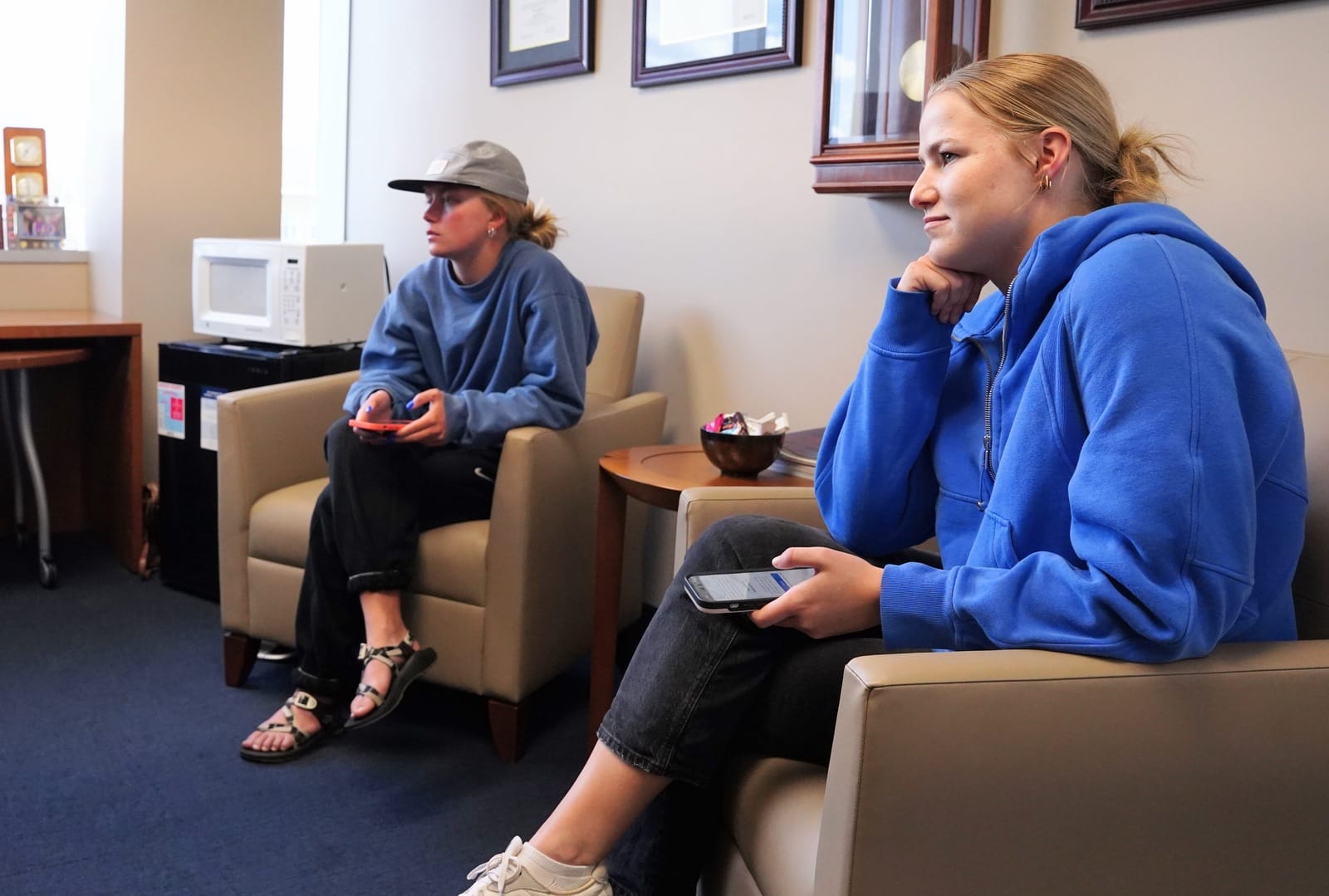
This summer, Anderson will return to her regular position, teaching classes like User Experience Design, Intro to Information Systems, and Advanced Excel. In her EMBA AI and Virtual Reality User Experience class, she likes having her students look into the capabilities of Artificial Intelligence. “In that class, we've used advanced versions of ChatGPT, Gemini, and other AI tools like Uizard—an AI that turns hand-drawn sketches into digital UI and HTML. We also integrate Gemini or ChatGPT with Visual Studio Code to quickly build websites. For example, we created a multilingual, ADA-compliant site that changes language and color scheme based on selected countries—all in about 15 minutes.”
Along with teaching, Professor Anderson also prioritizes her research. Her focus right now is on the interaction between humans and computers in a security sense. “We use neurophysiological tools, like an MRI, to scan people’s brains as they’re doing computer security tasks. We’ve found that for many things people do, their brain relies on memory rather than actually processing the new information. It’s called habituation. When a million things are going on, it can create a sensory overload, and we have to figure out what to pay attention to, and what we can tune out.”
Today, Anderson remains a minority in her field. As a professor, Anderson has worked to raise the number of female students in her classes from 3% to 35%. She encourages her female students not to be afraid to stand out and keep going! “できるよ “dekiru yo!” is my little motivational conclusion to any female students. Male students too, but men don’t question their belonging as much as women do. You can do it.”
On campus, Anderson is also known as the lady with the “green thumb.” She has given out hundreds of plants to her students. When asked why, she expressed, “Everybody needs a little green in their life. If the plants don’t survive, it’s alright, I’m happy to give out another one. I try to encourage women, and anyone else, to come see me. Please come. I always have candy and plants. Come get a treat, come get a plant. I’ll be happy to talk with you.”
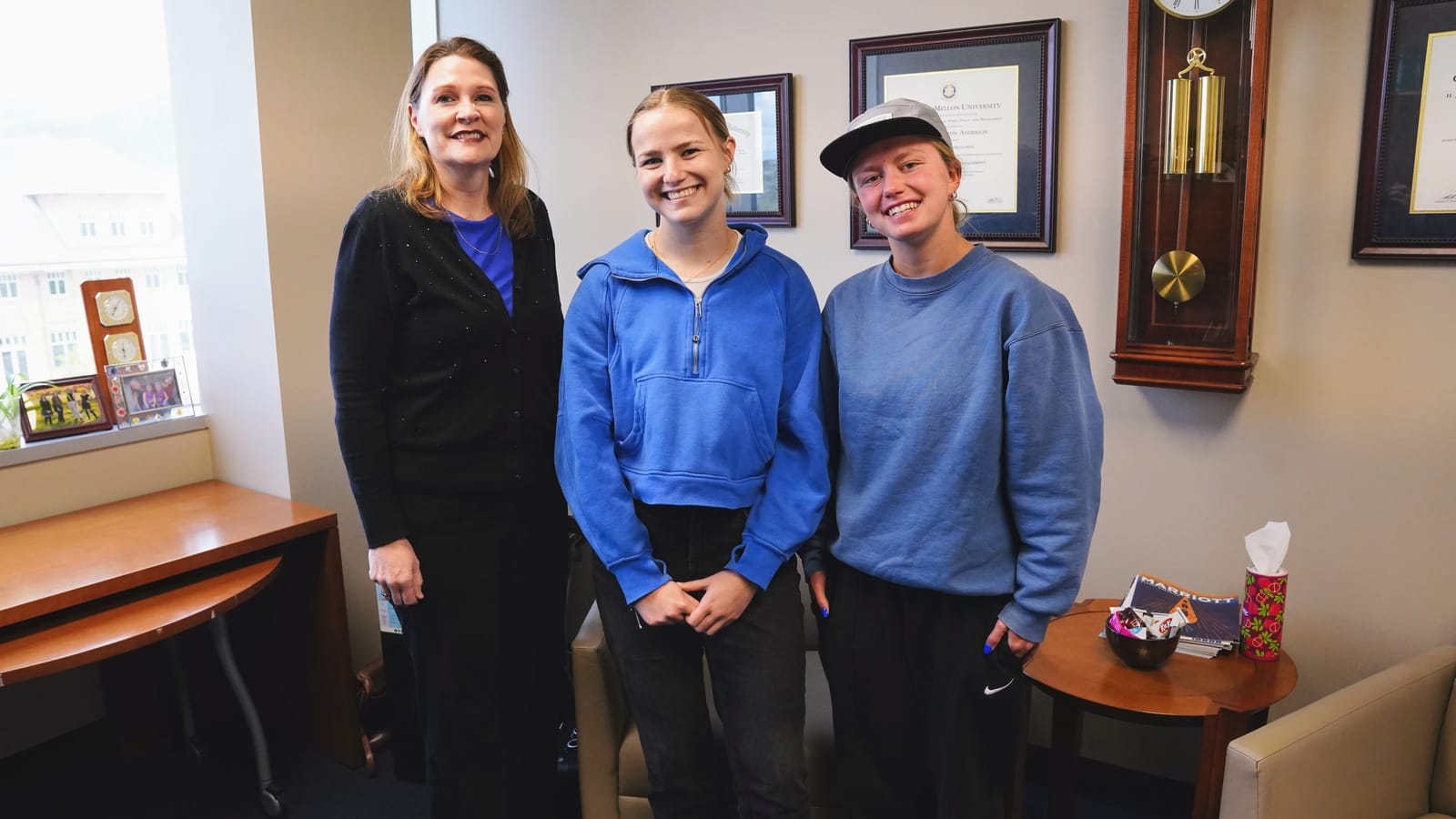
Through her experiences, Anderson has learned firsthand how hard it is to be the sole woman in the department. Finally, we asked her how people can better advocate for women in STEM. “What we need is allies. There was a professor in a class who allowed male students to express their discomfort of being around women. Unfortunately, because they had that mentality, they said they would never mentor a woman, or even meet with a woman individually. This unfairly limits mentoring and networking opportunities for women. So we need male allies to step up and allow us into networking and mentoring opportunities. Women have to go out of their way to find other women and build their networks because they often don’t have that environment in their teams. So, invite us to your table—let us be involved. There’s still room even if there are lots of men there.”
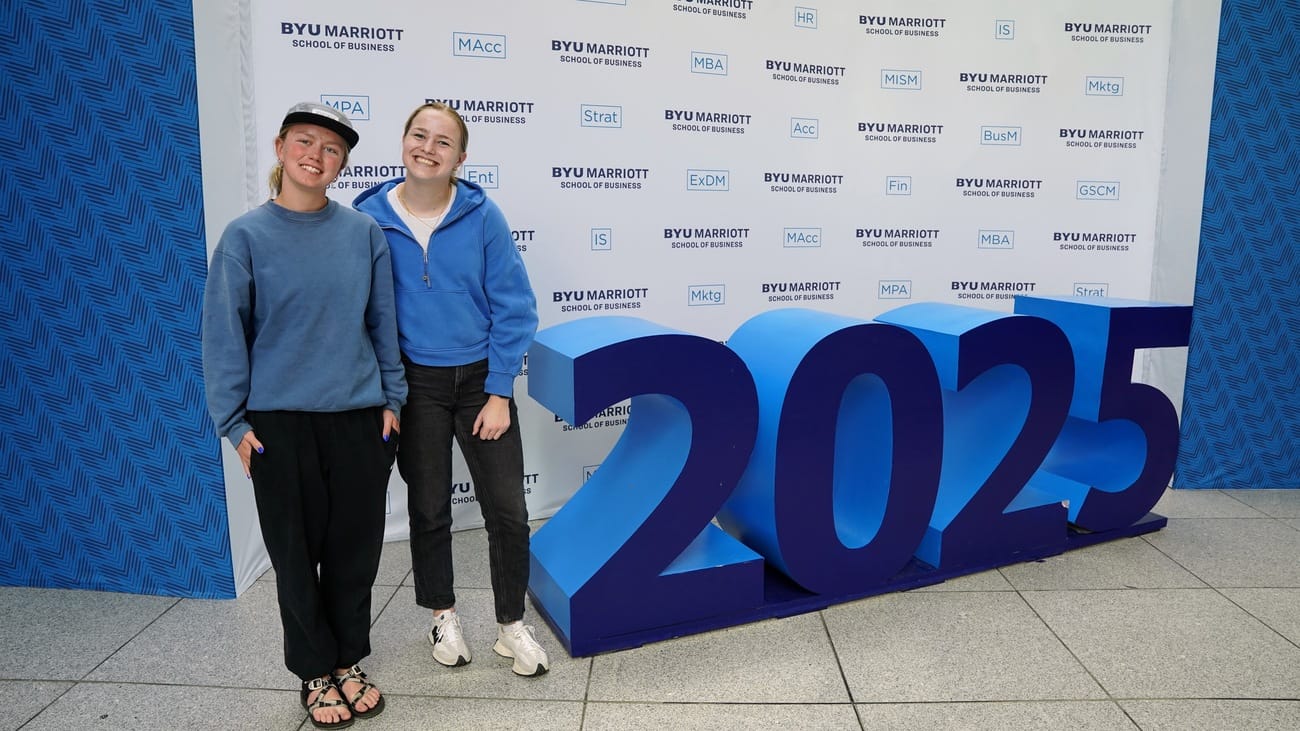
Haylee Heiner and Shae Stephenson, SheTech Media Interns for 2024–2025, recently graduated from Ogden High School in Ogden, Utah, where they were members of SheTech and National Honor Society. They completed several STEM courses and participated in many extracurricular activities.
The SheTech Media Internship—offered through TechBuzz News—provides young women opportunities in networking and journalism. Media interns' work is published on TechBuzz News, Silicon Slopes, and other media platforms. Through the internship, interns engage with finalists of the Women Tech Awards, reporting on achievements and contributions to the tech industry.


